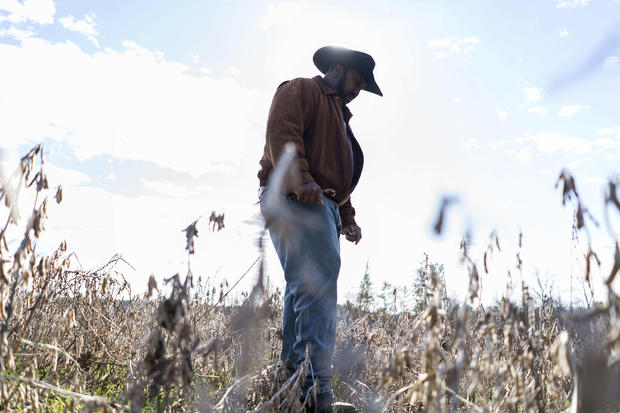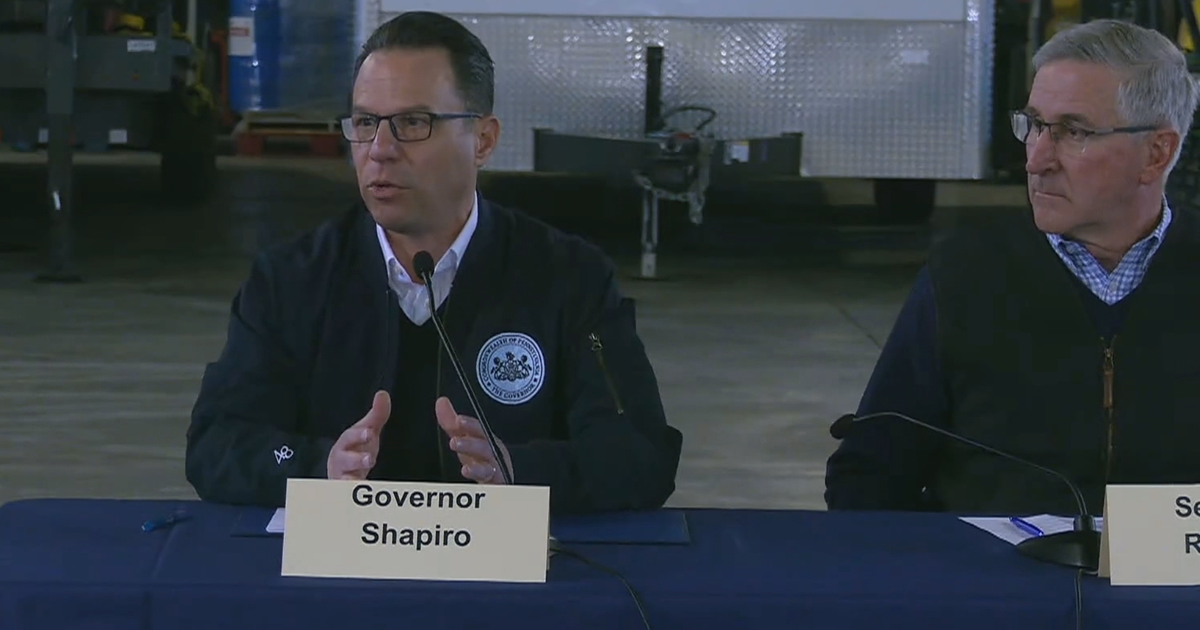Head of Black farmers group says he was "concerned" about Biden's USDA pick, urges focus on issues facing Black farmers
Two-time Iowa Governor Tom Vilsack led the U.S. Department of Agriculture for eight years under former President Barack Obama — and though he was nominated by President Joe Biden to serve again, the nomination has some civil rights advocates, like fourth-generation Virginia farmer John Boyd, hesitant.
"Secretary Vilsack wasn't my first pick, for certain. I was a little concerned when they first selected the former secretary to come back to the Ag department," Boyd, the founder and president of the National Black Farmers Association, said on CBSN. "But I do think he is going to be confirmed and hopefully, he will change and bring to the forefront the issues facing Black farmers."
Civil rights leaders have long criticized the Agriculture Department for discriminatory practices against Black farmers. And Vilsack has been criticized for failing to right those wrongs during the Obama administration.
Vilsack recently told The Washington Post via text message that he has had calls with Black farmers in various states to listen to their concerns.
"The calls were made out of respect for their concerns, to listen, and to learn," he said, The Post reported last month. "The calls were a start, and if confirmed, I will go to USDA with the understanding there is a lot more that needs to be done and accomplished at USDA to respond to the concerns and needs of Black farmers and other socially disadvantaged producers."
Boyd said Wednesday Vilsack was "a little slow" in helping him campaign in the House and Senate for the Claims Resolution Act of 2010, which Mr. Obama signed in December that year to settle discrimination claims by Black farmers and charges that the government mismanaged American Indian trust funds.
In 1920, Black Americans owned more than 14% of all U.S. farms. The number fell to less than 2% by 2017. An average of 820 acres per day were seized from Black farmers between 1950 and 1969. In addition, Black farmers were also frequently shut out of USDA subsidies and farm lending programs.
In 2010, Boyd along with Mr. Obama lobbied Congress to pass the Claims Resolution Act, aimed at paying Black farmers who were found to have been discriminated against by the Agriculture Department from 1983 to 1997, after a historic class-action lawsuit forced the department to admit to racist practices.
At the time, Vilsack called the bill's passing "an important milestone in putting these discriminatory claims behind us for good."
Boyd told CBSN he has had a few conversations with Vilsack and urged him to "appoint more Blacks that want to do the right thing, and Hispanics, and women, Native Americans to secretaries and undersecretaries and deputies."
"That's the way you bring real change, to put those type of persons in place that can help execute the right policies that will help Black farmers, and other small farmers," he said.
Vilsack's staffing decisions previously came under fire when he asked Georgia's first Black director of rural development, Shirley Sherrod, to resign in 2010 after a conservative blog released an edited video of remarks she made at an NAACP conference. Sherrod's comments were later found to have been taken out of context. Sherrod declined Vilsack's invitation to rejoin the department in a different role.
Boyd also spoke about the administration under former President Donald Trump, saying: "We've been totally shut out" of it.
"We are looking for better days," he said.
"We are excited about the possibilities that this new administration is bringing and this new Congress, the House and Senate," Boyd said. "I'm looking forward to working with leaders there."
He also thanked New Jersey Democratic Senator Cory Booker and other lawmakers for sponsoring the Justice for Black Farmers Act, a bill designed to strengthen accountability within the USDA and pave the way for Black farmers' inclusion in farming subsidies.




